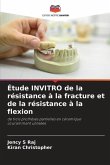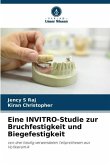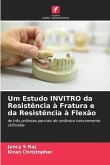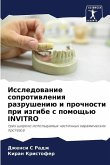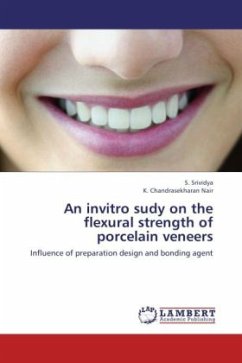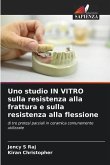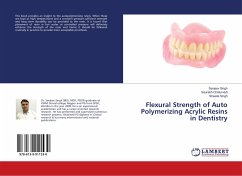Fixed partial dentures (FPDs) are the well-established and commonly accepted treatment protocol for the rehabilitation of partially edentulous oral conditions. Permanent restorations must satisfy biological and esthetic needs as well as mechanical requirements such as resistance to functional loads, resistance to removal forces, and maintenance of abutment alignment. The strength of a material can be dependent on how well these requirements are met. The flexural strength test is a combination of tensile and compressive strength tests and includes elements of proportional limit and elastic modulus measurements. The fracture resistance of these materials will be evaluated using a three-point bending test with the help of a universal testing machine. Monoblock castings do not differ from those made in segments and later welded regards the distribution of stresses. The numerical model of each sample will be subjected to different masticatory loads over the mid-pontic area to determine the maximum stress and deformation when the entire force acting on the FPD is concentrating orthogonally on that area.


